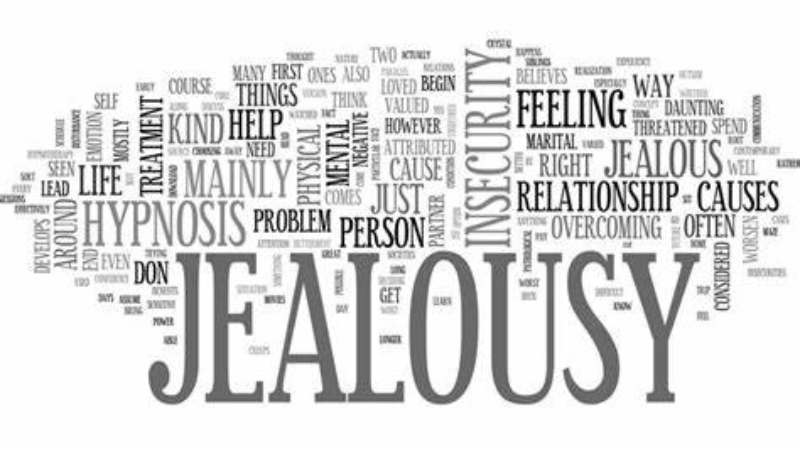Jealousy is a complex emotion that everyone experiences at some point in their lives. But why do you feel jealous, and what underlies this powerful emotion? It is often described as a combination of feelings such as fear, insecurity, anxiety, and resentment, typically triggered by the perception that someone else has something we want or could lose something valuable. While jealousy can sometimes motivate individuals to improve themselves, it is frequently viewed negatively due to its potential to harm relationships and personal well-being.
The Evolutionary Roots of Why You Feel Jealous
From an evolutionary perspective, jealousy may have developed as a mechanism to protect relationships and resources that are vital for survival and reproduction. In romantic relationships, for instance, when you feel jealous, it can serve as a guard against infidelity and ensure parental investment, thereby enhancing reproductive success. Evolutionary psychologists argue that jealousy helps maintain social bonds and ensures that individuals do not lose essential resources to competitors.

Psychological Factors
Attachment Styles:
Jealousy is deeply influenced by early attachment experiences. People with insecure attachment styles, such as anxious or avoidant attachment, are more prone to the situation where you feel jealous. These individuals may have experienced inconsistent caregiving in childhood, leading to fears of abandonment and insecurity in adult relationships.
Self-Esteem:
Low self-esteem is a significant predictor of jealousy. Individuals who do not feel confident in their worth or abilities are more likely to feel threatened by potential rivals. Jealousy can stem from a fear that they are not good enough or that they will lose something important to someone more deserving.
Personal Insecurities:
Personal insecurities and past experiences can make you feel jealous. People who have been betrayed or have experienced loss may be more sensitive to situations that trigger jealousy. These insecurities can manifest as a fear of losing a partner, status, or possessions.
Social Comparison:
This social comparison can make you feel jealous, particularly in environments that emphasize competition and status. Seeing others succeed in areas where we feel we are lacking can trigger envy and jealousy.

Situational Triggers
Certain situations are more likely to trigger jealousy. For example, in romantic relationships, perceived threats such as a partner showing interest in someone else or receiving attention from others can make you feel jealous. In professional settings, seeing a colleague receive a promotion or recognition can stir feelings of envy and competition.
Cultural Influences
Cultural norms and values also play a significant role in shaping how jealousy is experienced and expressed. In some cultures, jealousy may be more openly acknowledged and even expected in certain contexts, such as romantic relationships. In others, it may be viewed as a sign of weakness or immaturity, leading individuals to suppress or deny these feelings.
Managing and Overcoming Jealousy
While jealousy is a natural emotion, it can become problematic if it leads to destructive behavior or negatively impacts relationships. Understanding the underlying causes of jealousy is the first step in managing it effectively.
Self-Reflection:
Engaging in self-reflection can help identify the root causes of why you feel jealous. Understanding one’s insecurities and triggers allows for better emotional regulation and response.
Communication:
Open and honest communication with those involved can help alleviate feelings of jealousy. Discussing insecurities and concerns with a partner or friend can lead to reassurance and mutual understanding.

Building Self-Esteem:
Working on building self-esteem and self-worth can reduce the intensity of jealous feelings. Engaging in activities that boost confidence and self-acceptance is crucial.
Therapeutic Interventions:
Seeking the help of a therapist or counselor can provide strategies to cope with jealousy. Cognitive-behavioral therapy, for example, can help reframe negative thought patterns and develop healthier responses to jealousy triggers.
Focusing on Personal Growth:
Redirecting focus towards personal growth and self-improvement can be a constructive way to deal with jealousy. Setting and achieving personal goals can provide a sense of accomplishment and reduce reliance on external validation.
Conclusion
Jealousy is a multifaceted emotion with deep evolutionary, psychological, and cultural roots. While it can sometimes serve as a motivator for self-improvement and relationship maintenance, it often requires careful management to prevent negative outcomes. By understanding the underlying causes of why you feel jealous and adopting strategies to address it constructively, individuals can navigate this complex emotion in healthier ways. Ultimately, learning to cope with jealousy can lead to stronger self-awareness, improved relationships, and greater emotional well-being.




